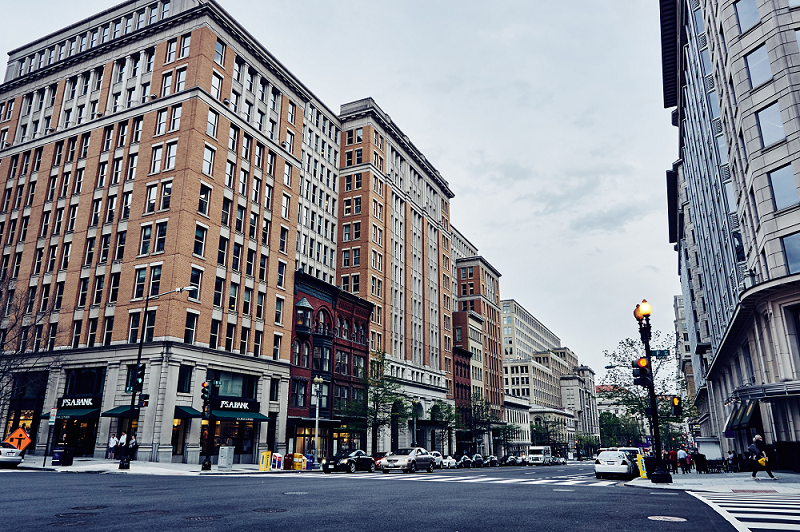This summer has been a rollercoaster for the DC budget, but we have some clarity on the BEPS deadlines. The latest update is that the proposed delays to the Building Energy Performance Standards (BEPS) and Net-Zero Energy (NZE) code were removed from the final FY26 Budget Support Act approved by DC Council on July 28, 2025. That means the current BEPS timelines are in effect and there are no extensions.
Current BEPS deadlines
As a reminder, here are the upcoming deadlines:
- All retrofit work must be completed and commissioned (operational) by Dec 31, 2025. This is not a requirement, but this is what needs to happen in order for Benchmarking to start January 1, 2026 so buildings can obtain a full year of benchmarking data to demonstrate compliance.
- Benchmarking the building’s compliance starts January 1, 2026 through December 31, 2026.
- BEPS Cycle 1 deadline: December 31, 2026
- Completed Actions Report due: April 1, 2027
- Third-party verified benchmarking report due: May 1, 2027
- In 2027 DOEE reviews the 2026 Benchmarking to determine compliance with BEPS 1.
- BEPS Period 2 starts January 1, 2028 (see our breakdown of the BEPS Amendment Act of 2024)
BEPS Timeline
| Buildings | First Year of Cycle | Last Year of Cycle | Evaluation Year | |
|---|---|---|---|---|
| Cycle 1 | >50,000 GFA | 2021 | 2026 | 2027 |
| Cycle 2 | >25,000 GFA | 2028 | 2032 | 2033 |
| Cycle 3 | >10,000 GFA | 2034 | 2038 | 2039 |
What’s happening with the Net-Zero Energy (NZE) code?
We don’t have a full net-zero energy code…yet. Currently, the DC Energy Conservation Code includes a voluntary net-zero energy option called “Appendix Z”. Final regulations for an NZE code must be issued by December 31, 2026 or Appendix Z becomes mandatory.
Applying to new construction and substantial improvements, the law requires that any building permit submitted starting January 1, 2027 will have to be designed to net-zero-energy standards. Under the Greener Government Buildings Amendment Act of 2022, publicly owned and funded buildings were required to start meeting net-zero energy compliance in 2023. Many buildings actually already follow the requirements, either in part or in whole.
Proposed changes to the NZE code and timeline included in the original budget support act were deleted in the final approved version and the current law is in effect.
Funding for District sustainability programs
The primary source for funding energy efficiency and sustainability programs in the District comes from the Sustainable Energy Trust Fund (SETF) which funds programs such as the DOEE, DC Sustainable Energy Utility (DCSEU), the DC Green Bank, BEPS support programs, job training, the Healthy Homes program, and more. SETF is funded through revenues collected from all District commercial, institutional, and residential customers as a surcharge on electric and gas bills (some customers are exempt).
The Budget Support Act (BSA) initially proposed significant changes to the funding of these programs, including elimination of the requirement that 30% of the SETF benefits low-income residents, increased energy cost spending by the Department of General Services (DGS), and more. The BSA also proposed changes to the Renewable Portfolio Standard (RPS), including extending the current DC government’s exemption to 2029.
In the approved budget, the Sustainable Energy Trust Fund was partially restored with modifications, including the creation of a new “Mayor’s Energy Surcharge” to cover DGS energy costs, and a lower threshold for DC Green Bank. The DCSEU budget maintained the same minimum threshold for FY26 and projected a reduction in FY27, however the final amount is subject to next year’s budget update. Stay tuned for a deeper dive on implications for SETF funding modifications.
Updated information on the Fiscal Year (FY) 2026 Budget Support Act (BSA) of 2025 can be found on the DC Council website, and you can also review the full cleaned up version approved by Council.


